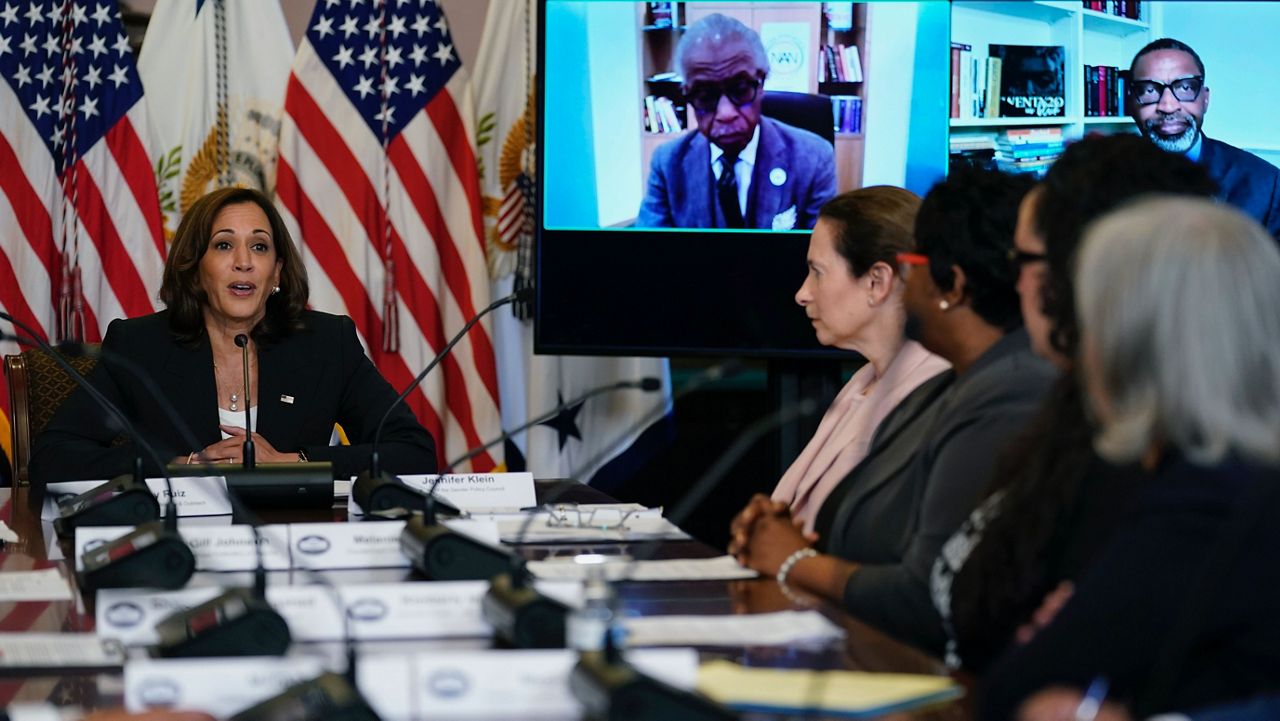Vice President Kamala Harris led a roundtable discussion with civil and reproductive rights leaders on Monday, discussing abortion rights in a post-Roe era.
It’s the latest in a series of similardiscussions that Harris has taken point on since the U.S. Supreme Court seismically shifted American abortion rights with its decision in Dobbs v. Jackson Women's Health Organization over the summer.
“We know that, with the Supreme Court having made the decision in Dobbs to take a constitutional right that had been recognized, from the people of America, from the women of America, has created a health care crisis in America,” Harris said.
This particular roundtable, Harris said, came to focus on the intersection of the civil rights movement and the reproductive justice movement, to push back on what Harris calls attacks on women’s rights, LGBTQ rights and voting rights — attacks that she said came from many of the “same sources.”
So far, since the Supreme Court’s decision in Dobbs overturned the prior court’s decision in Roe v. Wade, at least 16 states have moved to ban abortion, with some lawmakers in more states still seeking to do so.
“Those that are most affected are those who are already facing barriers to care: Black, Latinx, indigenous communities, rural communities, immigrant communities, those with low incomes living in states with the highest maternal mortality rates and the states with the most restrictive voting laws,” said Alexis McGill Johnson, Planned Parenthood Federation of America’s CEO and President. “Make no mistake: These bans are working exactly as they were intended to, to create a public health crisis.”
That crisis, she said, has led to long-distance traveling for people seeking abortion care, a 550% increase in out-of-state abortion care for Texans, and confusion among health care providers seeking to understand laws.
The maternal mortality rate for Black women is already more than three times higher than it is for white women, Shalondan Hollingshed of the National Urban League Young Professionals noted — and an abortion ban is projected to cause a spike in maternal mortality especially among Black people.
According to the University of Colorado - Boulder, the maternal mortality rate among Black people would jump from 18% to 39%.
In recent months, Harris has met with elected representatives from a more than a dozen states, reproductive health experts, disability rights leaders, higher education leaders, among many other advocates, to talk about the future of reproductive rights.
President Joe Biden has already signaled his interest in ensuring reproductive health care access with two executive orders, one in July, followed by another in August. The orders sought to expand access to medication abortion, emergency health care, contraceptions, and set a directive to support people traveling out of state for abortion care.
Democrats have thrown their support behind the Women’s Health Protection Act of 2022, which prohibits governmental restrictions on providing access to abortion services. The bill, sponsored by Rep. Judy Chu, D-Calif., passed the House in July, but appears to have stalled in the Senate.



